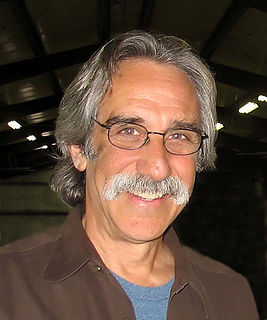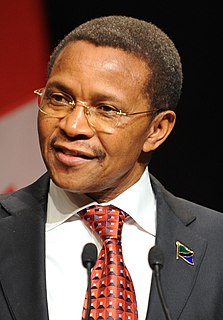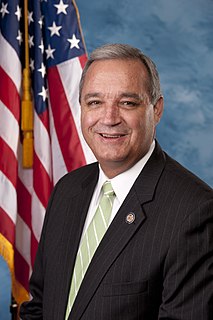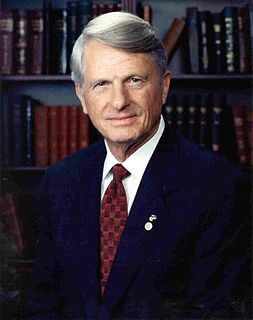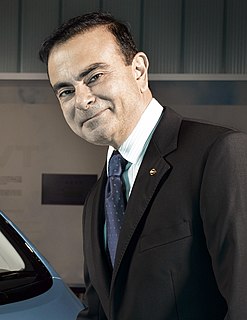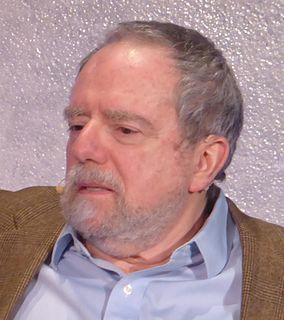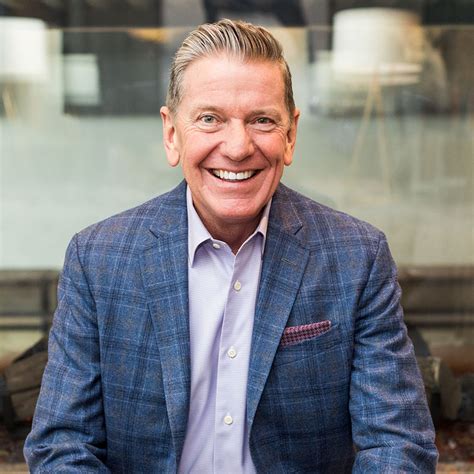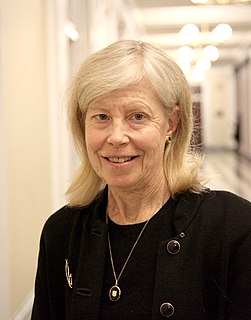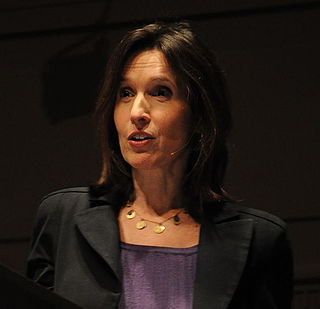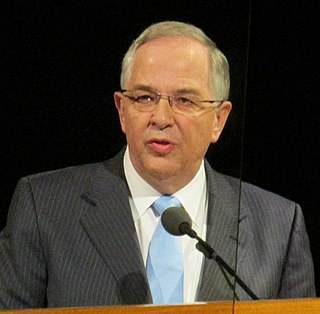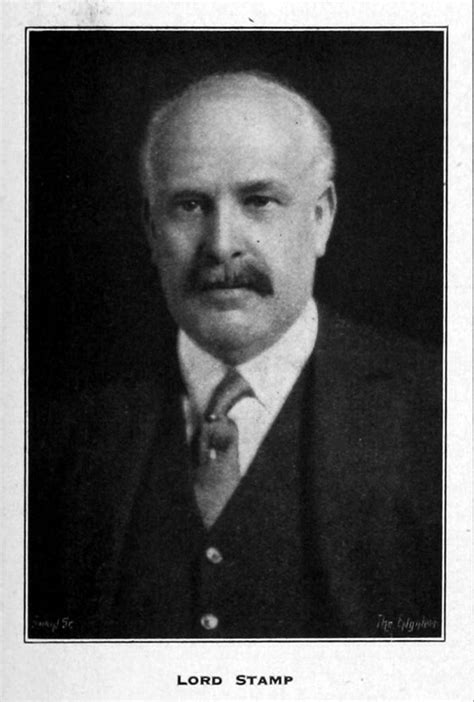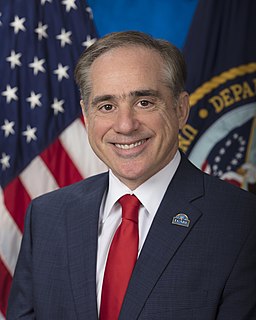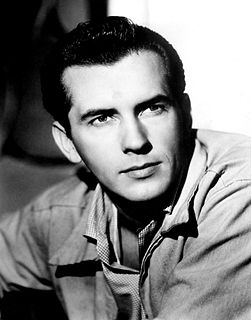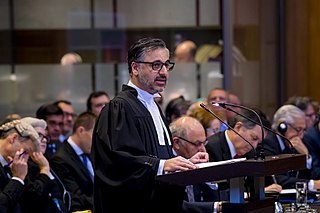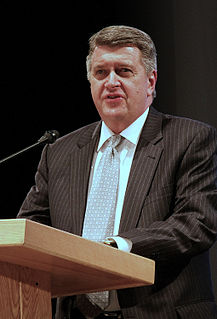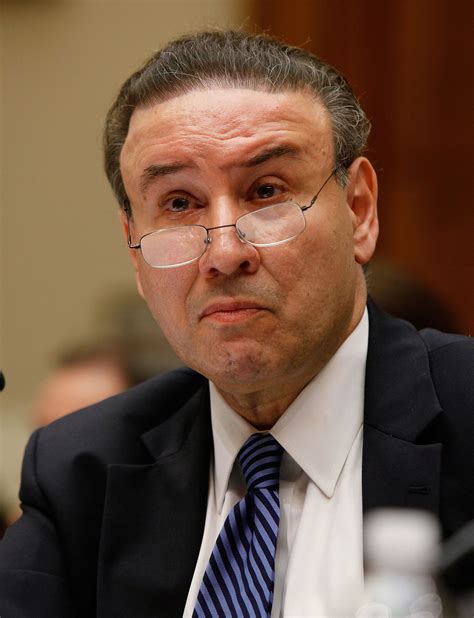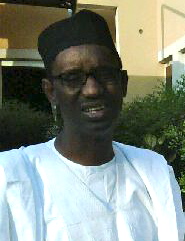Top 592 Accountability Quotes & Sayings - Page 10
Explore popular Accountability quotes.
Last updated on April 16, 2025.
Our whole goal is really to create a culture of accountability. Because for a very long time, ending sexual assault has been on the backs of survivors. And it's really up to everyone to be part of the solution. It's really about not creating a culture of awareness. It's something I often tell parents of kids who are going off to college: It's about asking those hard questions when your kids are applying to school and encouraging them to ask about their rights, to ask about their resources.
We design our own programmes; we take leadership. Of course the donors come in to support us, to complement our efforts. Our responsibility to the donors is about accountability: about how we use that money. If somebody gives you his money, definitely he will be interested in knowing how you spend the money.
I think one of the first steps - and I'm glad we were able to reach, again, a bipartisan agreement - is an accountability side. People are still shocked to find out that many of the same people that have been involved in really lying about the numbers in regards to wait time are still on the job. What we have done is we have come up with a crafted piece of bipartisanship that will, in fact, give the secretary the ability to fire those that have lied to him with an appeal process built in. I think that that will send a clear message to those who want to fudge the numbers.
In his 16 years in the Senate, John Kerry has fought against government waste and worked hard to bring some accountability to Washington. Early in his Senate career in 1986, John signed on to the Gramm-Rudman-Hollings Deficit Reduction Bill, and he fought for balanced budgets before it was considered politically correct for Democrats to do so. John has worked to strengthen our military, reform public education, boost the economy and protect the environment.
Sportsmanship is the ethical and moral dimension of sports. It is demonstrated by a number of attributes and attitudes such as fair play, respect for the rules and traditions of the sport and various traits of good character including integrity (abiding by the letter and spirit of the rules and concepts of honor); demonstrated respect for others including teammates, opponents, officials and spectators; accountability, self-control, and graciousness in victory and defeat.
I think that the best training a top manager can be engaged in is management by example. I want to make sure there is no discrepancy between what we say and what we do. If you preach accountability and then promote somebody with bad results, it doesn't work. I personally believe the best training is management by example. Don't believe what I say. Believe what I do.
Is there a wrong way to say "I don't know"? Yes. When we declare ignorance, it should be a) honest and b) in the spirit of opening ourselves up to hearing, to learning, to receiving. When we say "I don't know" under these conditions, the words can forge connection, healing, growth. But when we resist or disavow knowledge, when we profess ignorance as a way of donning armor and evading accountability, then we make a mockery of those words, and we rupture connections not only with others but within ourselves, within our souls.
It is man's intrinsic and irreducible self-responsibility to humanize himself, to exercise his entire range of rational and moral resources to raise his mode of being and seeing and acting above not just that of animals, but also above that of the majority of subhuman (never to be self-realized) humans who will never draw themselves into a self-punishing position of focal self-diagnosis and self-accountability.
The promulgation of the great doctrines of religion, the being, and attributes, and providence of one Almighty God: the responsibility to him for all our actions, founded upon moral freedom and accountability; a future state of rewards and punishments; the cultivation of all the personal, social, and benevolent virtues-these these never can be a matter of indifference in any well-ordered community. It is, indeed, difficult to conceive how any civilized society can exist without them.
The Nazis, for him, are merely available movie tropes--articulate monsters with a talent for sadism. By making the Americans cruel, too, he escapes the customary division of good and evil along national lines, but he escapes any sense of moral accountability as well. In a Tarantino war, everyone commits atrocities. Like all the director's work after 'Jackie Brown,' the movie is pure sensation. It's disconnected from feeling, and an eerie blankness--it's too shallow to be called nihilism--undermines even the best scenes.
Intrapreneurs consider them-selves on a mission to help society, to give it what it needs and wants, to truly serve others and improve themselves. Like all producers, they believe in a deep accountability, refuse to assign blame, don't believe in failure, and give their heart and sould to truly serve the customer and benefit society.
How can the physique be braced if no fresh breath from the outer world is suffered to permeate the languid, enervating air of thedrawing-room? How can the grasp of the mind be vigorous, without action? Daughters of inherited wealth, or accumulated labor! the wide door of philanthropy is open peculiarly to you! Your life-work lies beyond your threshold: your wealth has placed you above the sorrowful struggle for daily bread which takes up the whole time of so many of your brothers and sisters. You are the almoners of God. A double accountability is yours.
Design and the urgency to preserve it - not as a museum relic, as a living experience. And for me, something that lives alongside mass-produced goods. I'm not saying get away from it. My battle is there is a marketplace for what people wear and what they eat and care about how things are made and not just that they were made, and that's the core focus. I know where things come from, I know their families. I do that throughout my life - I know who makes my suits, and I know where my eggs come from. Everyone and everything is accounted for and has accountability.
Surprisingly, it's forgiveness, not guilt, that increases accountability. Researchers have found that taking a self-compassionate point of view on a personal failure makes people more likely to take personal responsibility for the failure than when they take a self-critical point of view. They also are more willing to receive feedback and advice from others, and more likely to learn from the experience.
I do think the whole question of judicial accountability is a complicated one. On the one hand, you want to encourage judicial independence. And it's always, I think, problematic when an unpopular decision triggers a recall election. Because it sends a disempowering message to judges. On the other hand, it's the only way that voters have to rein in someone whose views are really so out of the mainstream of public opinion that they jeopardize the legitimacy of the judicial process.
On issue after issue, the polls - and these are not snapshot polls; these are polls over a consistent period of time - show that most Americans share what one could call core liberal or progressive values: investment in health care and education over tax cuts; fair trade over free trade; corporate accountability over deregulation; environmental protection over laissez-faire policies; defending Social Security and Medicare over privatizing them; raising the minimum wage over eliminating it. The country prefers progressive alternatives to the failed policies of the conservative right.
With the influences of evil that surround our children, can we even imagine sending them out in the morning without kneeling and humbly asking together for the Lord's protection? Or closing the day without kneeling together and acknowledging our accountability before Him and our thankfulness for His blessings? Brothers and sisters, we need to have family prayer.
Some favorite expressions of small children: "It's not my fault...They made me do it...I forgot." Some favorite expressions of adults: "It's not my job...No one told me...It couldn't be helped." True freedom begins and ends with personal accountability. -Dan Zadra It is easy to dodge our responsibilities, but we cannot dodge the consequences of dodging our responsibilities.
There are the fundamental core values of the Democratic Party, which is to work to grow the economy, to create jobs, to encourage small business, to encourage ownership, to expand access to quality health care, to enhance opportunity by making higher education more affordable to American's young people, to have our children live in safe neighborhoods, drug-free, crime-free, and a safe and clean environment, first and foremost to provide for the national defense, to protect and defend the American people, and to have accountability for our budget and for our spending.
The only way we really create change is to enter any situation with the humility to listen and to recognize the world as it is, and then the audacity to dream what it could be, to have the patience to start and let the work teach you, to be willing to lead when you need to lead, and to listen. To have a sense of generosity and empathy, but not over-empathy, because accountability is so critical to building solutions that work.
Accountability is a two way street. We can't just make it easier for us to fire people; we must make it easier for us to hire people. It takes VA an average of 240 days to complete the hiring process for executives joining VA from outside government. We are losing talented people because it simply takes too long.
Few knew in 2000 that George W. Bush was going to end up with neoconservatives all over the place. Once 9/11 happened, I think it's fair to say that some neocons have had an enormous influence. The whole solution to every problem was to go after Iraq. This had been a neoconservative mantra for ten years. Bush certainly sees himself as having been given an endorsement. He was asked why Donald Rumsfeld,Condoleezza Rice, and Paul Wolfowitz have been promoted, these people who led us into the debacle in Iraq. Bush said there was accountability-it was the election. So there we are.
The top group of fundraisers for Mr. Obama raised $457,834 for his 2008 campaign - and were approved for federal grants and loans of $11.4 billion, according to the Government Accountability Institute. Selling access to the federal treasury has been a great way for Democrats to raise campaign funds. Since 1989, according to an analysis by Gateway Pundit, big donors have provided $416 million more in direct contributions to Democrats than Republicans.
It's like a paradox. For one side, being popularized rap got better and the other side of it got worse. It's very pop and it's very different now. When you make it as pop and as soft as it is, it lacks its integrity. It lacks its accountability. It lacks a lot of other things that came from that dangerous time in hip hop.
Because there's no accountability on line in the same way there is in real life, all of a sudden you can say like, yeah, I hate women; I want to kill women. And you can say that online, and not only will you find a place to say it, but you'll find a place to say it where people are like, yeah, me too.
Unlike in school, in life you don't have to come up with all the right answers. You can ask the people around you for help - or even ask them to do the things you don't do well. In other words, there is almost no reason not to succeed if you take the attitude of 1) total flexibility - good answers can come from anyone or anywhere (and in fact, as I have mentioned, there are far more good answers 'out there' than there are in you) and 2) total accountability: regardless of where the good answers come from, it's your job to find them.
Until you can become accountable to yourself and only yourself, you're probably not going to live a fully vital life. So much of literature is about accountability. The moral issues in most novels are about people becoming responsible for their own behaviour. One of the forces against being responsible for your own behaviour is the force of the past, in the way that the past tries to form you.
Criminal trials are fundamentally about individual accountability whereas truth commissions are less about the guilt of the perpetrator and more about the suffering of the victim. A criminal trial is only incidentally a therapeutic or cathartic process for victims. But truth commissions, as we saw in South Africa, have the advantage of giving tens of thousands of people the opportunity to tell their stories, and not only does that contribute to healing but it also contributes to reconciliation, especially when perpetrators also come and express contrition.
Because we do not understand all the circumstances surrounding someone's suicide, the level of the person's accountability, and the penalty that the Lord, in his infinite love and wisdom, may see fit to inflict upon the person, we must avoid judgment. Regardless of those circumstances and the Lord's divinely imposed punishment, followers of Christ are to be loving and compassionate to those who are hurt by the act of suicide.
Human rights and international criminal law both illustrate the contradictory potential of international law. On one level, the imposition of human rights norms is a restraint on interventionary diplomacy, especially if coupled with respect for the legal norm of self-determination. But on another level, the protection of human rights creates a pretext for intervention as given approval by the UN Security Council in the form of the R2P (responsibility to protect) norm, as used in the 2011 Libyan intervention. The same applies with international criminal accountability.
Whether or not you believe in God, you must believe this: when we as a species abandon our trust in a power greater than us, we abandon our sense of accountability. Faiths… all faiths… are admonitions that there is something we cannot understand, something to which we are accountable. With faith we are accountable to each other, to ourselves, and to a higher truth. Religion is flawed, but only because man is flawed. The church consists of a brotherhood of imperfect, simple souls wanting only to be a voice of compassion in a world spinning out of control.
I think Martin Luther King would always keep track of collective insurgencies among poor and working people. He was concerned about the treatment of Jews in the Soviet Union, for example. He would have closely followed the Arab Spring. And certainly he would be very critical of the massive surveillance state that has emerged in America in the last five to 10 years. He would have approved of the movements trying to gain some accountability in U.S. foreign policy, such as drones being (used) on innocent people. I think he would march against drones.
Accountability is the essence of democracy. If people do not know what their government is doing, they cannot be truly self-governing. The national security state assumes the government secrets are too important to be shared, that only those in the know can see classified information, that only the president has all the facts, that we must simply trust that our rulers of acting in our interest.
Law-abiding Americans deserve to know that their government will not secretly tap their phones, read their medical records, access their library accounts or otherwise invade their personal lives, with no oversight or accountability. Law-abiding Americans also deserve to know that when law enforcement can show an impartial judge clear evidence of criminal activity or a threat to national security, swift and decisive action will be taken to protect the public. That is the balance we must achieve.
So much of our politics is stuck in patterns of response that aren't working. When student performance is declining in schools, we implement more controls, more testing, more "accountability," more rigor. We apply even more of those things, from security systems to control of students' behavior through pharmaceutical drugs. That's a situation in which doing is only making things worse. You may have to go through a phase of de-programming, letting go of old habits, coming to stillness, before you can even see what the pattern of action was, and what alternatives there might be.
Rwanda is a very open and free country. Key to our recovery as a nation has a range of grassroots, citizen-centered polices we call "homegrown solutions." The idea that Rwanda is highly controlled from the center belies the reality, which is that citizens in every village have a powerful say in how things get done. We prize accountability and Rwandans are quickly adapting themselves to the possibilities of a digital economy.
When corruption is king, there is no accountability of leadership and no trust in authority. Society devolves to the basic units of family and self, to the basic instincts of getting what you can when you can, because you don't believe anything better will ever come along. And when the only horizon is tomorrow, how can you care about the kind of nation you are building for your children and your grandchildren? How can you call on your government to address what ails society and build stronger institutions?
A lack of affiliation may mean a lack of accountability, and forming a sense of commitment can be hard without a sense of community. Displacement can encourage the wrong kinds of distance, and if the nationalism we see sparking up around the globe arises from too narrow and fixed a sense of loyalty, the internationalism that's coming to birth may reflect too roaming and undefined a sense of belonging.
The importance of making sure that the sense of accountability when, in fact, law enforcement is involved in a deadly shooting is something that I think communities across the board are going to need to consider, we have a great opportunity, coming out of some great conflict and tragedy, to really transform how we think about community law enforcement relations so that everybody feels safer and our law enforcement officers feel, rather than being embattled, feel fully supported.
Wal-Mart, with its legendary focus on customer value in terms of price, is innovating in sustainability. Now, we're beginning to see the mirror image, a convergence, as the not-for-profit sector is beginning to serve more effectively by applying private sector accountability and efficiencies to social needs. This reflects a rising recognition that to serve others best requires more than good intentions; it mandates a focus on real-world results. Bill Gates and Warren Buffett are among the most conspicuous advocates and representatives of this transformation.
These Muslim Brotherhood fronts - the Council on American-Islamic Relations, the Muslim Public Affairs Council, the Islamic Society of North America - we need accountability for what these groups are doing and need to understand that in many ways they are as toxic and dangerous for America as are their violent counterparts, which have exactly the same goal that they do, which is imposing the Shariah doctrine on all of us.
Making promises to myself, in my personal writing practice, has been important to me all my life. In practical application it is so much easier for me to make promises to others, and keep them, than it is to make promises to myself. "Why is that?" and the answer I gave myself is that in making promises to others I create a model of accountability and reinforcement. I duplicate that in my writing and have grown increasingly better at making and keeping promises to myself.
The EU might have become a large federal nation. But they would have had to do things differently. Number one, they would've had to make people feel like participants in a common project of autonomous law-giving. Much more political accountability, much more participation. That didn't happen, I think, because the movers and shakers were more concerned with economic union than political union.
Creating a high-functioning education system requires all the strategies involved in building high-functioning organisations anywhere. It requires a deliberate and aggressive strategy to ensure extraordinary talent at every level of the system, from the superintendentcy to district offices to principalships to classrooms. It requires building systems for accountability; offering parents the ability to choose their public schools is the ultimate form of this. It requires building a strong culture at the system and school levels based on high expectations for student achievement.
Faith can cut in so many ways. If you're penitent and not triumphal, it can move us to repentance and accountability and help us reach for something higher than ourselves. That can be a powerful thing, a thing that moves us beyond politics as usual, like Martin Luther King did. But when it's designed to certify our righteousness - that can be a dangerous thing. Then it pushes self criticism aside. There's no reflection.
Sometimes, when asked the what-do-you-do question, it occurs to me to say that I work for the government. I have a government job, essential to national security. I AM A CITIZEN. Like the Supreme Court judges, my job is for life, and the well-being of my country depends on me. It seems fair to think that I should be held accountable for my record in the same way I expect accountability from those who seek elected office. I would like to be able to say that I can stand on my record and am proud of it.
The principle of self-reliance grows out of a fundamental doctrine of the Church, that of agency. Just as each individual is accountable for his choices and actions in spiritual matters, so also is he accountable in temporal matters. It is through our own efforts and decisions that we earn our way in this life. While the Lord will magnify us in both subtle and dramatic ways, he can only guide our footsteps when we move our feet. Ultimately, our own actions determine our blessings or lack of them. It is a direct consequence of both agency and accountability.
Democracy is not about trust; it is about distrust. It is about accountability, exposure, open debate, critical challenge, and popular input and feedback from the citizenry. It is about responsible government. We have to get our fellow Americans to trust their leaders less and themselves more, trust their own questions and suspicions, and their own desire to know what is going on.

